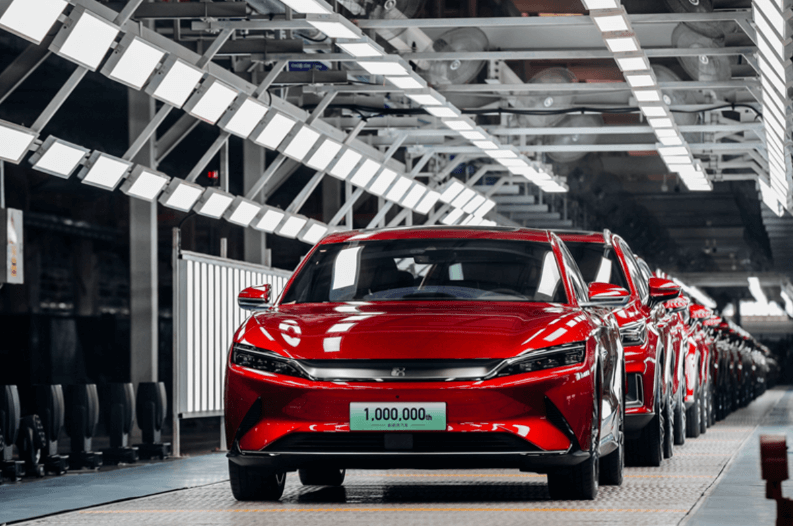The U.S. government has expressed concern about the possibility of Chinese automakers setting up production plants in Mexico and exporting units to the U.S. market.
Some companies based in the People’s Republic of China have announced plans to establish manufacturing facilities in Mexico, which could allow them to receive favorable trade terms contained in the Mexico-U.S.-Canada Agreement (USMCA).
This concern was raised in a final rule, published by the Department of Commerce, in which the U.S. government bans imports of “connected” vehicles containing software and hardware from China and Russia.
Chinese automakers
Three companies manufacture electric buses in the United States: BYD (based in China), Proterra (based in the United States) and New Flyer (based in Canada).
In Mexico, BYD executives have stated that the company is evaluating the installation of a car production plant, focused on the Mexican market and without the intention of exporting units to the United States.
According to the U.S. Department of Commerce, the People’s Republic of China’s automotive sector is expanding its global operations. In addition, recent foreign investment announcements suggest that Chinese manufacturers may seek to enter the U.S. market. To achieve this, they could use exports from third countries.
On the other hand, the Department of Commerce warned about the associated risks. Exports of vehicles with Chinese information and communication technologies and services from third countries would increase threats to U.S. national security.
Third Countries
The Commerce Department warns that the growing presence of the People’s Republic of China in the global automotive sector poses a challenge to U.S. national security. This expansion, especially through operations in third countries, could increase linkages between Chinese suppliers of connected vehicles and U.S. manufacturers or consumers. This would create new national security risks.
In part, the growth of the Chinese auto industry has been driven by strong state support. Both state-owned and private manufacturers have taken advantage of significant subsidies to expand globally.
This expansion has led Chinese companies to establish operations in countries such as South Africa, the Netherlands, Thailand, Japan and Brazil. Therefore, the use of third countries in the manufacture of Chinese vehicles increases the associated risks.

